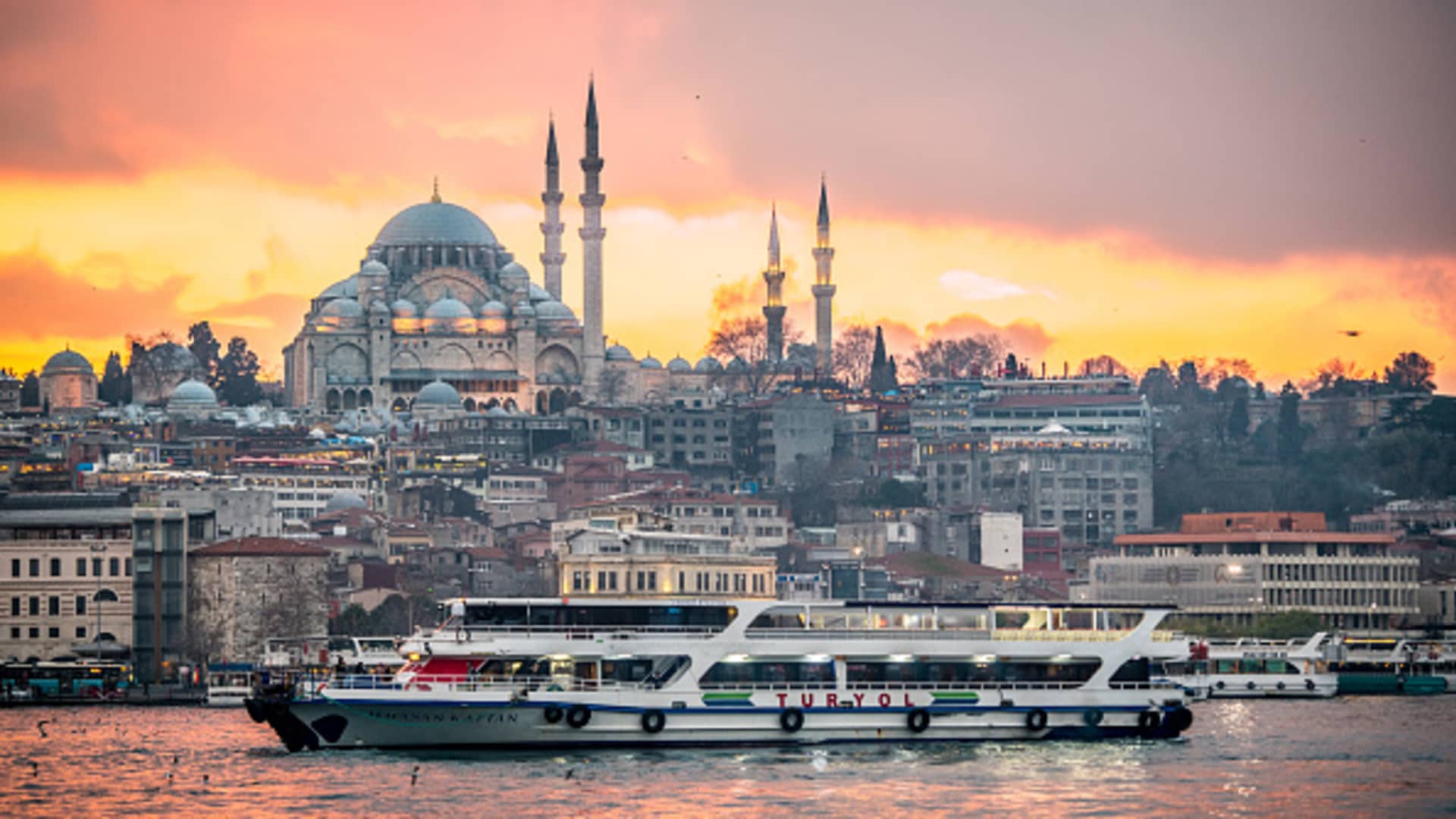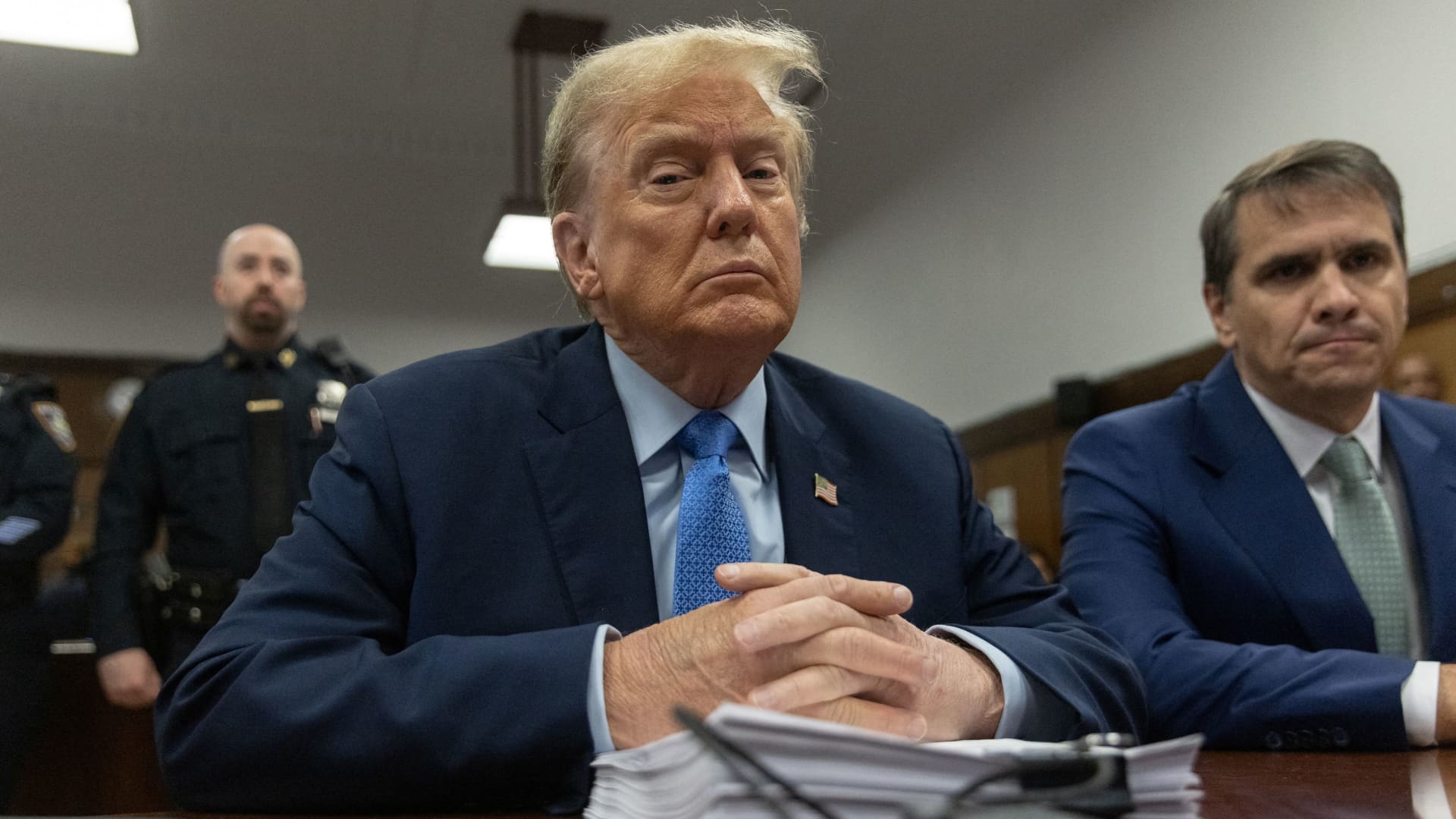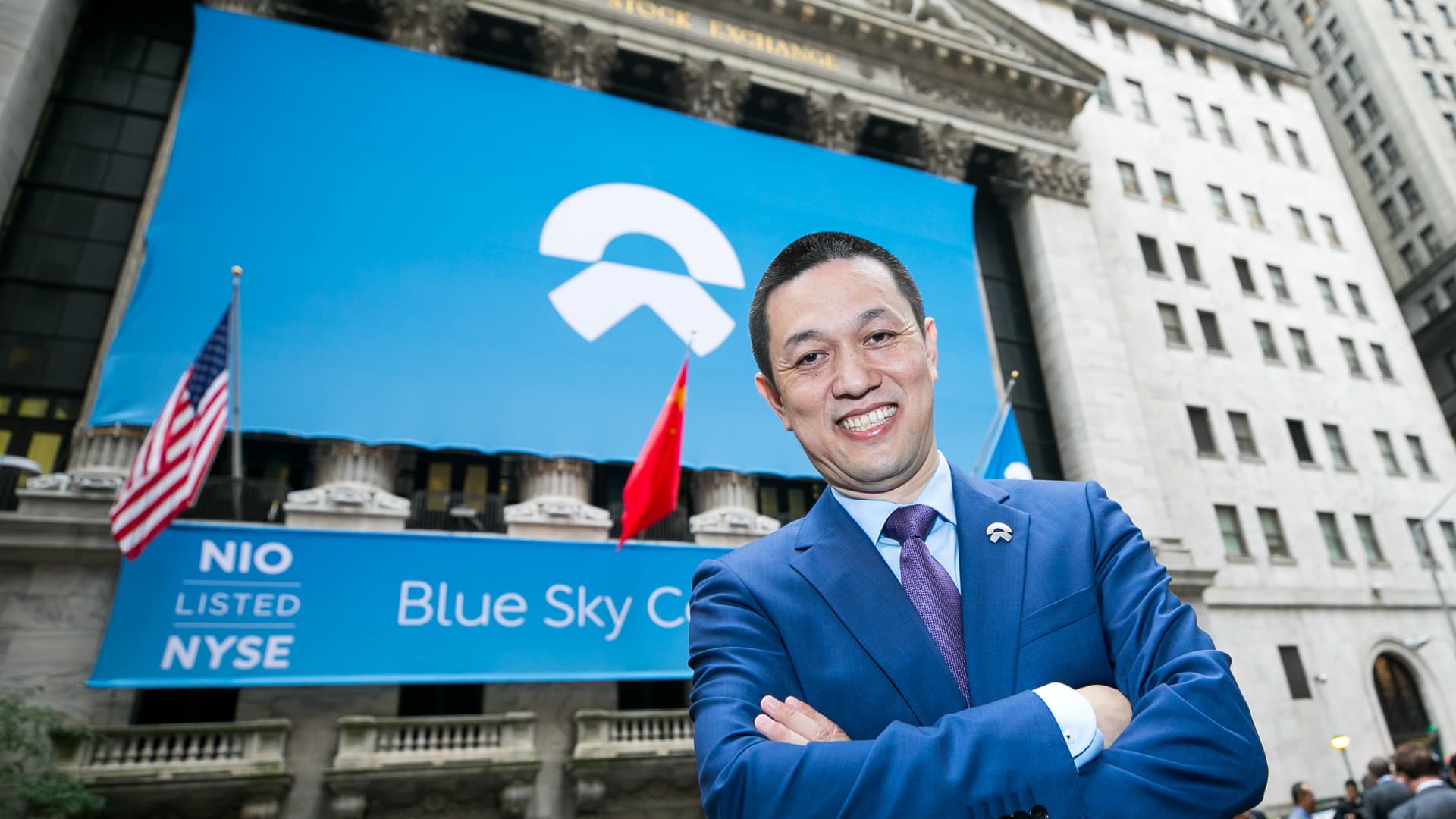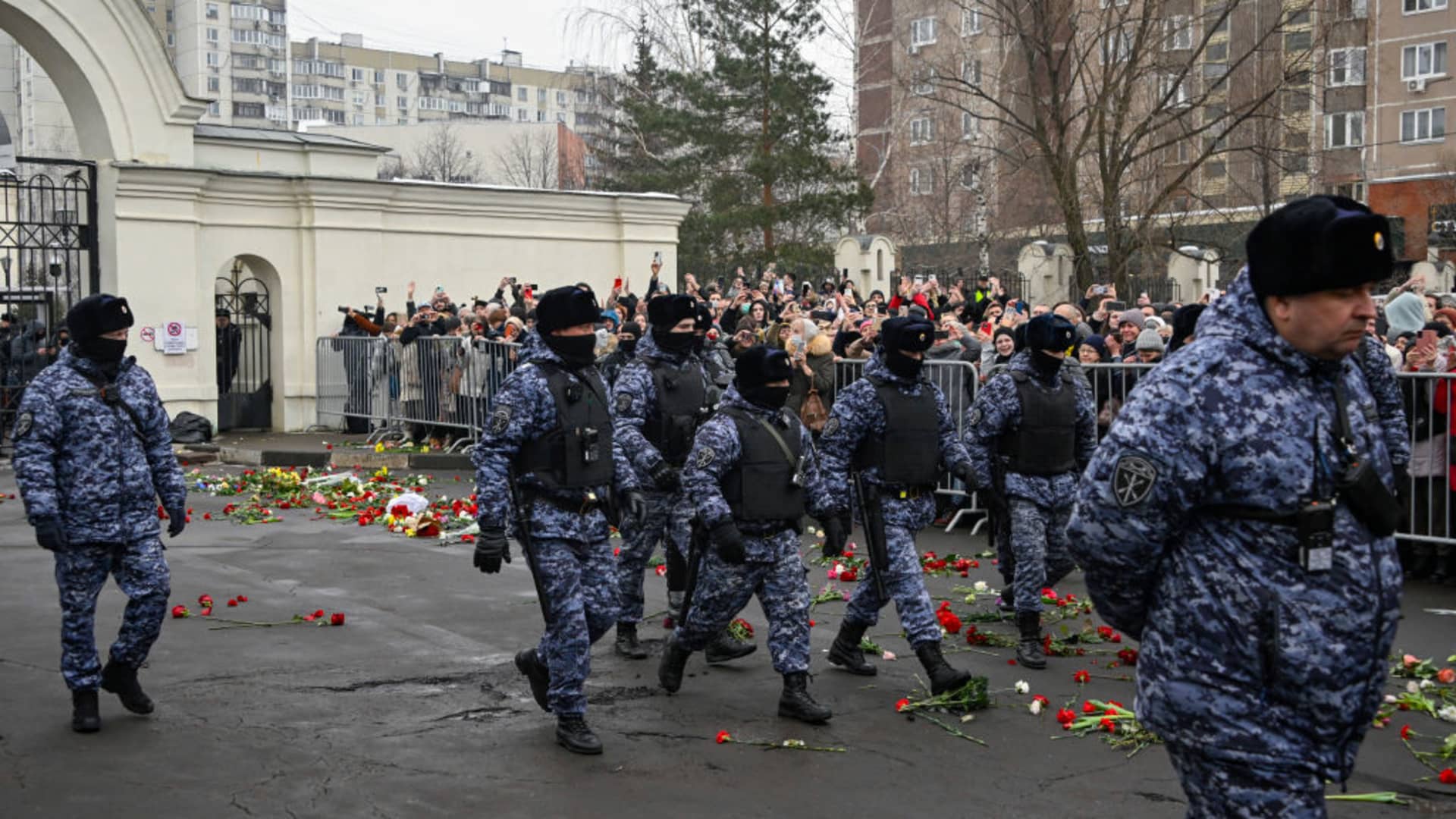A ferry glides across the Golden Horn at sunset with the Suleymaniye Mosque and the city of Istanbul, Turkey in the background.
VW pictures | Universal Images Group | Getty Images
Turkish President Recep Tayyip Erdogan once said: Whoever wins Istanbul, Turkey wins. If that’s the case, the stakes are high for Sunday’s election as people across the country of 85 million prepare to choose their local leaders and administrators.
This weekend’s vote is so important that political analysts are speculating that a victory for Istanbul’s incumbent mayor, center-left Ekrem Imamoglu, would make him a leading candidate for Turkey’s presidency in 2028.
That’s the last thing Erdogan wants after his conservative, Islamist-sympathizing Justice and Development Party, abbreviated in Turkey as the AK Party or AKP, has already been defeated in the city’s elections by Imamoglu and the more secular, moderate Republican People’s Party ( CHP) was defeated in 2019. Erdogan was so outraged by the election results that he called a second election, only to see Imamoglu defeat the AK Party’s mayoral candidate by an even larger margin.
An opposition victory on Sunday could give the country a new direction and pose a major challenge to Erdogan and the AK Party’s decades-long grip on power. Erdogan himself rose to prominence as Istanbul mayor in the 1990s before later winning the presidency. Now he is pushing hard for his party’s mayoral candidate, Murat Kurum, a 47-year-old former environment and urbanization minister.
“Istanbul is a very important point of political struggle,” said Arda Tunca. an Istanbul-based economist at PoliticsYol told CNBC. 16 million people live in the city, making it more populous than 20 of the 27 countries in the European Union.
And Turkey, as NATO’s second-largest military and an important economic and political crossroads between East and West, has emerged in recent years as a global player, playing a prominent mediating role in conflicts such as the war between Ukraine and Russia Brokered investments and trade agreements with wealthy Arab Gulf states.
Ukrainian President Volodymyr Zelensky shakes hands with his Turkish counterpart Tayyip Erdogan during a news conference in Istanbul, Turkey, March 8, 2024.
Umit Bektas | Reuters
“Many countries in the world are governed by cabinets of ministers, but Istanbul – larger than many of these countries – is governed by a mayor. “It’s strange, but it also shows how important it is to win Istanbul,” said Tunca.
Major Turkish cities such as Istanbul and the capital Ankara will be important races to keep an eye on. Both were won by the opposition in 2019.
“Turkish local elections are often a political barometer ahead of presidential and parliamentary elections scheduled for 2028,” said Kristin Ronzi, Middle East and North Africa analyst at risk consultancy RANE.
“Although the manifestos of the candidates for the local elections reflect local issues that impact the daily lives of Turkish citizens, the local elections can lay the foundation for the next presidential election.”
“The main problem of the opposition is the opposition itself”
Despite years of economic turmoil, inflation is over 65% and the Turkish lira at its weakest level ever the dollar, Tunca believes Erdogan’s AK Party, which has long dominated at the national level, will win this weekend’s contest. He attributes this to the opposition itself, which he describes as its own worst enemy.
“For the opposition, the biggest challenge is its weak politicians and disorganized politics. The main problem for the opposition is the opposition itself,” he said.
Istanbul Metropolitan Municipality Mayor Ekrem İmamoğlu speaks at the May 19 Atatürk Commemoration and Youth and Sports Day celebrations held at the Maltepe Event Grounds on May 19, 2023 in Istanbul, Turkey.
Hakan Akgun | Getty Images
In May 2023, a large opposition coalition came together to oust Erdogan from the presidency in Turkey’s last parliamentary election. The result was a heavy defeat and disappointment for the opposition, led by Imamoglu’s CHP.
Some in Turkey blame this because the popular Imamoglu himself, now 52, was barred from running by the Turkish judiciary. Erdogan’s opponents say that the president orchestrated this with the aim of limiting his competition. The AK Party says the reason for the ban was tax crimes, while CHP supporters claim it is purely political.
“Although the AKP is governing the country very badly and Turkey’s economic situation has deteriorated, the AKP will once again be the winner in the coming elections,” Tunca assured.
For Rane’s Ronzi, the competition is more of a back and forth affair.
“Poll data for the Istanbul mayoral race suggests a close race,” she said. The opposition is now more fragmented than before, meaning multiple opposition candidates could split the vote.
Still, she said, “close polling data from some key elections suggests that the CHP has significant support in these communities. If the CHP candidates win in important elections, it would be evidence that they can overcome the political fragmentation among the opposition parties.”
These candidates would then “likely be considered as potential presidential candidates before the 2028 presidential election given their ability to attract popular support.” [and] “To unite opposition voters,” she added.
Meanwhile, analysts are watching to see how the results will determine Erdogan’s next steps and whether the already unequal political environment will become even less democratic.
The nonprofit Freedom House described in its 2023 Freedom in the World country report on Turkey that Erdogan and his AK Party “have become increasingly authoritarian in recent years, consolidating significant power through constitutional changes and the imprisonment of opponents and critics “.
“A deepening economic crisis and upcoming elections… have given the government new incentives to suppress dissent and limit public discourse,” the report continued.
CNBC has reached out to the Turkish presidency’s office for comment.
For Soner Cagaptay, director of the Turkish research program at the Washington Institute, a loss for Erdogan’s party could only reinforce these tendencies rather than weaken them.
“If the president’s faction retakes the city from the opposition on March 31, he may feel comfortable enough to focus on more positive legacy-building steps,” he wrote in an article for the think tank. “But a defeat could lead him to further strengthen his nationalist and populist policies at home and abroad.”
Source link
2024-03-29 06:46:12
www.cnbc.com














